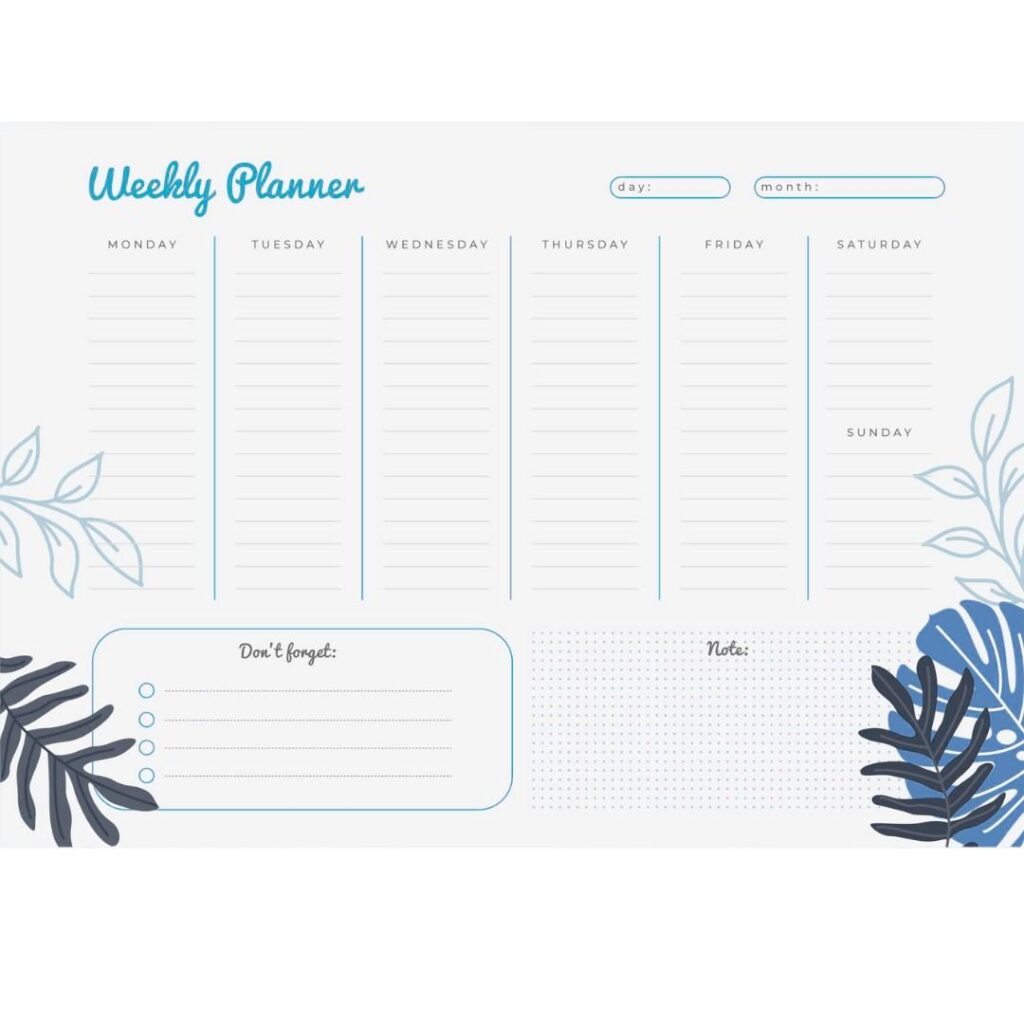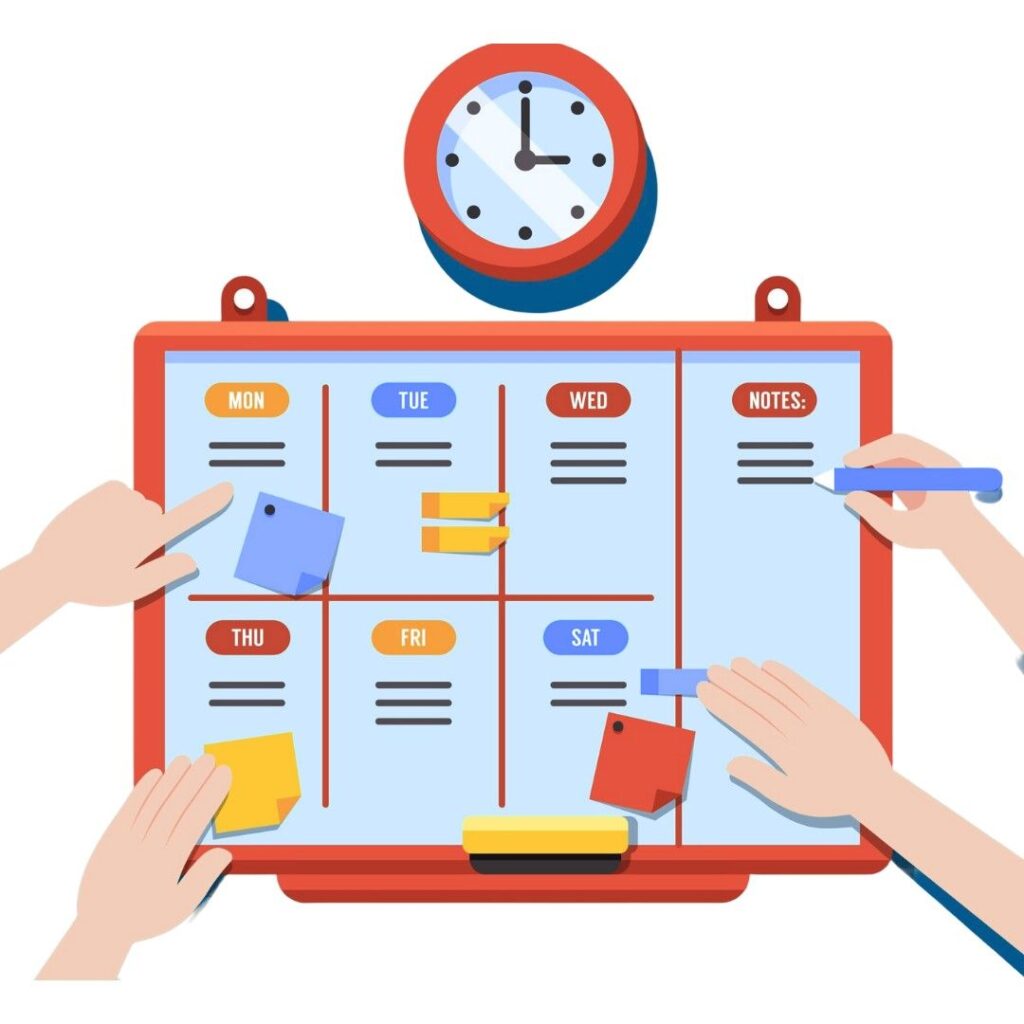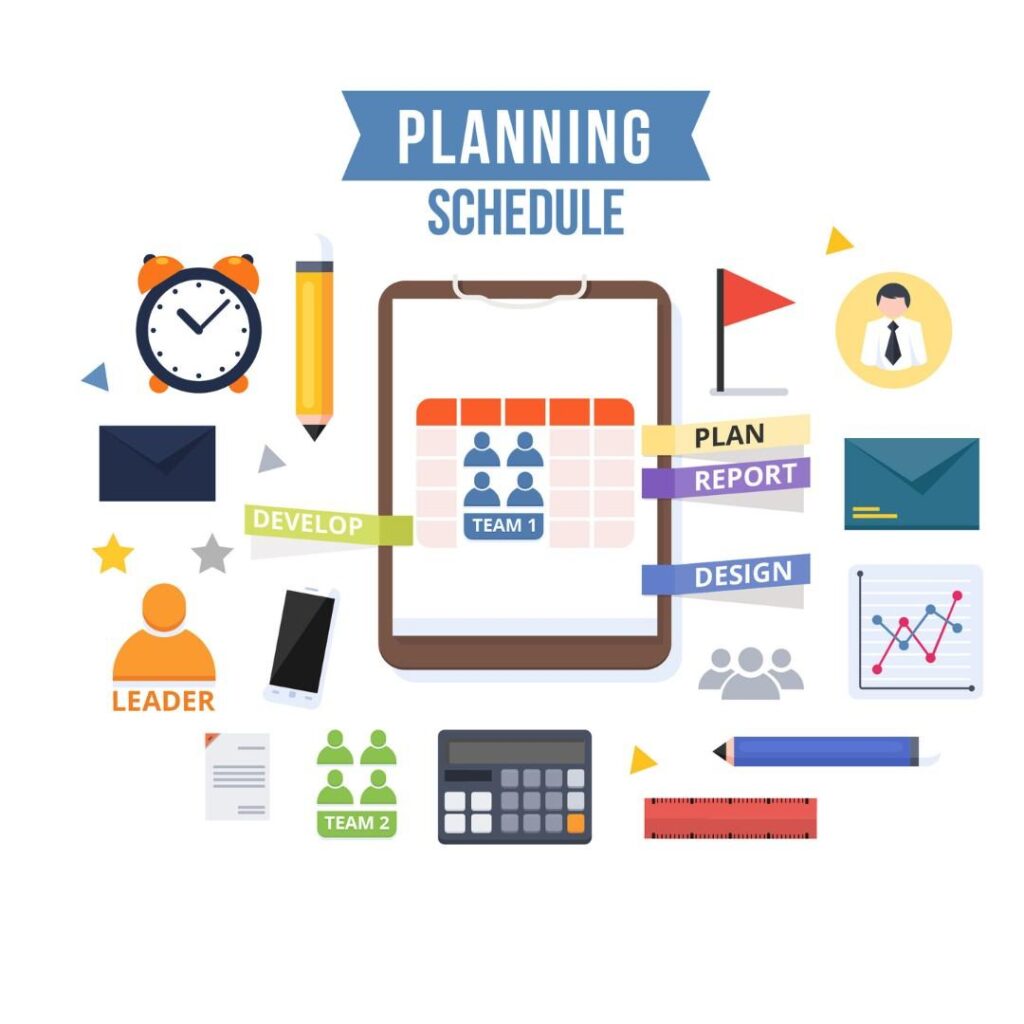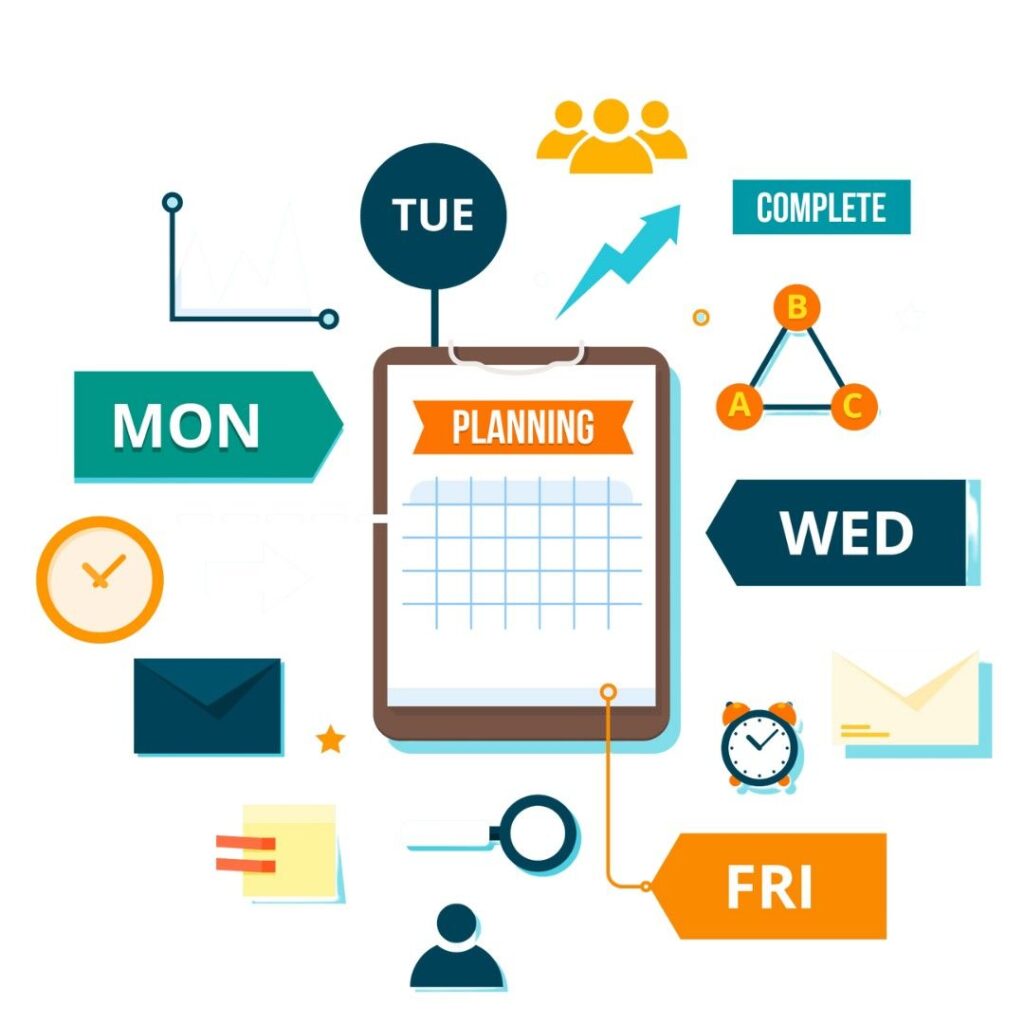
If you’re feeling a little all over the place with your marketing tasks each week, you’re not alone. There’s a lot of posts to write, emails to send, ads to check, and the list goes on.
That’s where a digital marketing planner really helps. It’s not about overcomplicating things, but more about knowing what to focus on each day.
In this blog, we’ll break down a simple weekly plan you can actually stick to. Whether you’re just getting started or need a reset, this daily guide will make your digital marketing a whole lot easier.
What Is a Digital Marketing Planner?
digital marketing planner is your simple guide that outlines how the week’s online work should be done. With it, you can make sure every day is organized and you don’t forget any task.
- It may be a simple notebook, a spreadsheet or any digital device you find convenient.
- Keeps all of your activities, emails and campaigns consistent.
- Enables you to understand your strong points and the areas that require improvement.

You don’t need anything fancy. Just something that keeps you organized and on track.
Monday: Set Goals and Review Performance.
Mondays are all about taking a step back before jumping in. If you’re using a digital marketing planner, this is where you start.
- Check last week’s numbers—how many people visited your site, liked your posts, or signed up for anything?
- Notice what content got the most attention and what content gets low impressions.
- Based on that, set simple goals for the week. Could be growing followers, writing two blogs, or boosting email opens.

Tuesday: Plan and Create Content.
Now that your goals are clear, Tuesday’s the day to get creative. This is the part where your digital marketing planner helps you stay focused.
- start outline blog posts, Instagram captions, or whatever content you need. Don’t worry if it’s not polished yet.
- Use a content calendar (even a simple one) to figure out what goes where and when.
- Mix things up—some posts can teach, some can promote, and some can just be fun or helpful.
Wednesday: Schedule and Publish Content.
Here is where the prep starts to pay off. You have got content now it’s time to get it out there.
- Use tools like Buffer or Meta Business Suite to schedule your posts ahead of time.
- Upload your blog to your site and make sure you have added the right keywords.
- Send out emails or newsletters if that’s part of your plan this week.

Thursday: Engage With Your Audience.
Thursday’s a good time to connect with people, not just post and log off. Your digital marketing planner should remind you to actually talk to your audience.
- Reply to comments, DMs, and reviews—even the short ones.
- Jump into conversations in your niche, maybe on LinkedIn or industry forums.
- Try out polls, Q&As, or fun Instagram stories to get people talking.
This engagement builds trust, and trust builds business.
Friday: Track Campaigns and Run Ads.
End your week by checking on the stuff that costs money—ads and campaigns. A solid digital marketing planner includes space to track this too.
- Take a look at how your ads are doing—are they reaching the right people?
- Make small changes if needed, like tweaking the audience or budget.
- Launch weekend promos if you’ve got something time-sensitive.
No need to overthink it, just keep an eye on performance and adjust when needed.
Saturday: Competitor & Trend Research.
Saturdays are great for stepping back and seeing what are going on around you. A good digital marketing planner isn’t just about your own content—it helps you track what others are doing too.
- Take a look at your competitors are posting—what is getting likes, shares, comments?
- Look into any new tools, features, or trends in your industry. AI tools, platform updates, things like that.
- Jot down ideas that you might want to try out next week.
You don’t need to copy anyone—but staying informed helps you stay one step ahead.
Sunday: Reflect and Prep for Next Week.
Sundays should be light, not stressful. Use this time to reflect, not hustle. Your digital marketing planner should include a little space for weekly notes.
- Think about what worked this week—and what didn’t land so well.
- Update your calendar for next week. Maybe move a task or adjust a post
Taking 15–20 minutes here can make a big difference in how smooth your week goes. Plus, it’s kinda nice to start fresh with a plan.

Conclusion.
We have come to the end of the article, and that is your full week, all mapped out, digital marketing planner, and remember planner doesn’t just save time—it helps you stay focused, consistent, and a lot less stressed.
If something doesn’t work, adjust and try again next week. That’s the beauty of planning—it gives you space to grow without losing track of what matters.
Need a hand with planning, content or SEO Contact Digihertz, your digital marketing partner in Chennai. Whether you need a solid digital marketing planner or full-service support, we’ll help you out.





